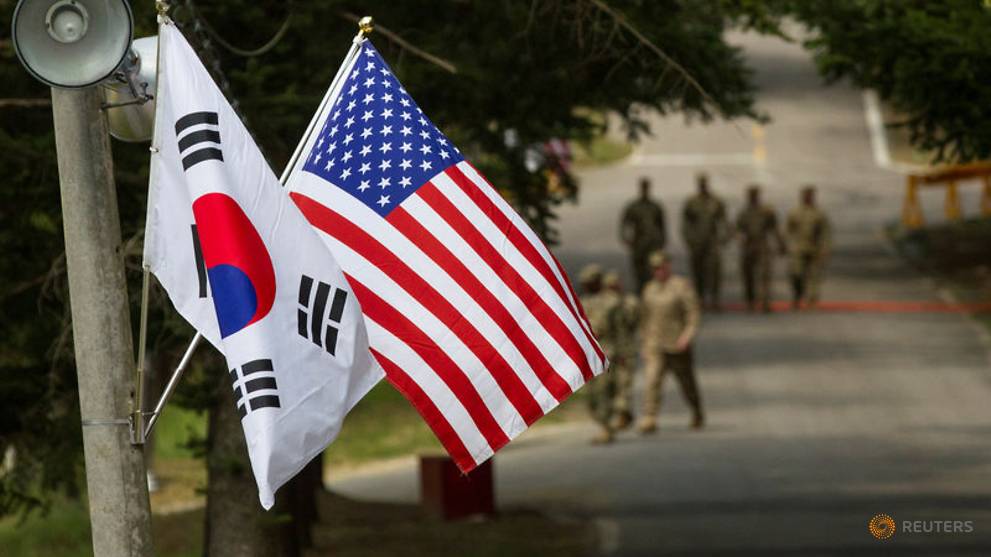
BANGKOK: The United States and South Korea said on Sunday (Nov 17) they will postpone upcoming military drills in an effort to bolster a stalled peace push with North Korea, even as Washington denied the move amounted to another concession to Pyongyang.
The drills, known as the Combined Flying Training Event, would have simulated air combat scenarios and involved an undisclosed number of warplanes from both the United States and South Korea.
Advertisement
Advertisement
In deference to Pyongyang, the exercises had already been reduced in scale and scope from previous years, but North Korea still objected to them regardless.
US Defense Secretary Mark Esper said the US and South Korean militaries would remain at a high state of readiness despite the move, and denied that the decision to postpone the drills was a concession to North Korea.
"I don't see this as a concession. I see this as a good faith effort … to enable peace," Esper told reporters, as he announced the decision alongside South Korean counterpart Jeong Kyeong-doo in Bangkok, where Asian defense chiefs are gathered for talks.
"I think creating some more space for our diplomats to strike an agreement on the denuclearization of the peninsula is very important."
Advertisement
Advertisement
The drills were meant to begin in the coming days.
Earlier this month, a senior North Korean diplomat blamed the US joint aerial drill for "throwing cold water" over talks with Washington. Pyongyang regularly opposes such US-South Korean joint military exercises, viewing them as a rehearsal for invasion.
US URGES RESUMPTION OF TALKS
Still, it was unclear whether the decision by Washington and Seoul would kickstart talks with Pyongyang aimed at getting the reclusive state to give up its nuclear weapons program.
Esper said he hoped North Korea would respond to the gesture.
"We encourage the DPRK to demonstrate the same goodwill as it considers decisions on conducting training, exercises and testing," he said, using the acronym for the North's official name, the Democratic Peoples Republic of Korea.
"We also urge the DPRK to return to the negotiating table without precondition or hesitation."
As talks stall, North Korea has tested the limits of engagement with a string of missile launches, and experts warn that the lack of a concrete arms control agreement has allowed the country to continue producing nuclear weapons.
The missile tests have practical value for the North Korean militarys efforts to modernize its arsenal. But they also underscore Pyongyangs increasingly belligerent position in the face of what it sees as an inflexible and hostile United States.
North Korea said on Sunday it had tried to interpret the US adjustments to joint drills positively, but the recent UN resolution on human rights showed Washington had no sincerity in upcoming talks.
Pyongyang described the UN criticism of its human rights record as a product of US "hostile policy" aimed at toppling its regime, and called the resolution a US “political provocation.
“Even if dialogue open, nuclear issues will never be discussed, before the issue of withdrawing US hostile policy was put on the agenda to improve relations with us,” the North's foreign ministry said in a statement carried by the official KCNA news agency.
DON'T BE OPTIMISTIC
At the start of a three-way meeting with Esper and South Korea's Jeong in Bangkok, Japanese Defence Minister Taro Kono cautioned against optimism and called for the three nations to ensure military readiness.
"No one could be optimistic about North Korea," Kono said. "North Korea has repeatedly launched more than 20 missiles this year, including new types Read More – Source










